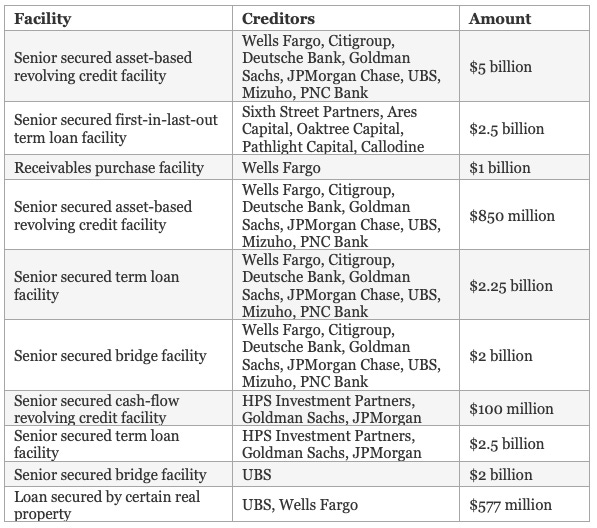BREAKING: Sycamore to Fund $24B Walgreens Buyout with 80%+ Debt
The industry average for take-privates in Q4 2024 was 53%. Experts worry this puts Walgreens at a high risk of default and bankruptcy.
Yesterday, we covered Sycamore Partners’ $24 billion take-private of Walgreens in our Value Add newsletter. Amongst other insights, one analyst predicted that the take-private will include downsizing and the stripping of major assets from the company.
New insights from a recently-filed SEC form DEF14A, however, show just how drastic these sell-offs will have to be to fund the debt Walgreens intends to take on to fund the deal.
According to the form, the nearly $24-billion deal will only include $3.75 billion in new equity. The rest — over 80 percent of the deal value in total — will come from debt. The industry average for take-privates in Q4 2024 was 53%, according to Pitchbook.
On the equity side, Sycamore Partners itself has committed $2.5 billion in equity from its third flagship fund, though according to Pitchbook, the 2017 vintage only has $1.29 billion in capital available to invest as of the end of last year. It is possible that Sycamore Partners will be taking out a loan of its own to fund its piece of the transaction.
An additional $1.25 billion in preferred equity coming from co-investor Golden Tree Management, a hedge fund and private credit shop that specializes in high-volatility products such as distressed debt, high-yield bonds, emerging markets debt, and cryptocurrency. Walgreens chair Stefano Pessina is also rolling over his existing 17 percent equity stake, worth $2.1 billion.
Portco News reached out to Golden Tree Management for comment on its role in the transaction but has not yet received a response.
Meanwhile, the debt side of the deal is a behemoth including over a dozen creditors:
In total, this is nearly $18.8 billion in debt. Even if Walgreens is able to sell off all of the assets listed as ripe for sale in yesterday’s newsletter at their juiciest valuations, it’s unlikely that the firm would be able to bring in that much cash. Its 6 percent stake in Cencora, for example, is worth a little over $3 billion. Meanwhile, it could likely bring in a maximum of $4 billion from Shields Health and $3.4 billion from VillageMD.
The amount Walgreens could garner from CareCentrix is unclear, but the at-home caregiver was worth just $800 million in 2022.
Given these figures, it is more than likely that Walgreens will have to implement major cost cutting if it intends to avoid bankruptcy.
"The amount of debt in the Walgreens acquisition is concerning, in addition to Sycamore Partners pledging capital that it does not appear to have,” said a spokesperson for the Private Equity Stakeholder Project, a PE-focused financial watchdog organization. "The heightened risk of bankruptcy threatens job security for workers, disrupts services for consumers and patients, and creates ripple effects across local economies.”
The spokesperson added: "This leveraged buyout tactic saddles private equity-owned companies with substantial debt, often draining resources that could otherwise be invested in innovation, workforce development, or adapting to market changes.”
Walgreens claims it has 312,000 employees across 12,500 stores throughout the U.S., Europe, and Latin America
Sycamore Partners declined to comment.



